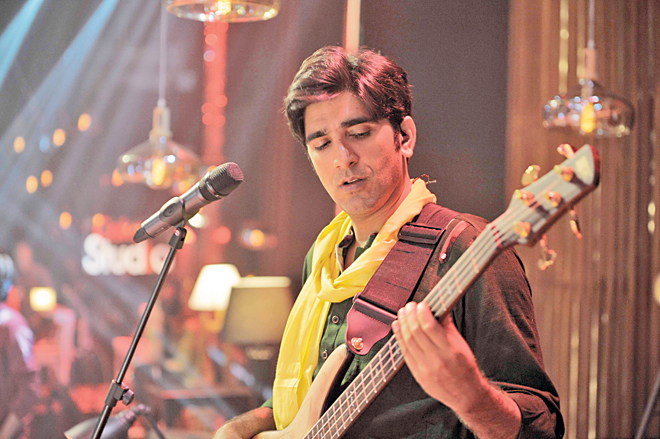
They tend to have very specific tastes, with their lyrics and sound, a peculiar and niche audience that they cater to - but with the new age of music, with streaming and digital media revitalising not just the music industry but the sense of art and artistry on the whole, everything is changing once again. About two decades ago, when Noori broke norms, the challenges were different. How does Noori, now as veteran musicians, see themselves in a rapidly developing and a far more inclusive market? We asked. This is what Ali Hamza, the prolific songwriter and singer of the epic band Noori had to say.
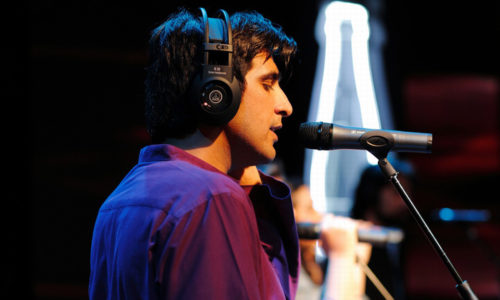
ET: From your first album as Noori to Coke Studio, how has this journey been? What have been the best and worst parts of being singers/entertainers in Pakistan?
Ali Hamza (AH): It’s definitely not been a boring journey. The journeys aren’t boring when they keep changing, and they’re not monotonous. That’s what both Ali Noor and I cherish about this journey – that it’s unpredictable and we get the space to reinvent ourselves and rediscover. The best part is that you’re an ‘andhon main kaana raja’ of sorts; the worst part (laughs) is also the very same thing.
ET: Streaming has changed many things in the entertainment medium across the world. How has this altered the way you make music? When you started we were still listening to TDK cassette tapes.
AH: I think in the last 100 music years, everything from the way communication platforms work and the way its mechanisms function have all been dependent on technology. Earlier there was the LP that restricted you to make a 45 minute or a 70 minute feature – that’s how the concept of an album came about. Before that there was no such idea or concept. Then we had CDs, and now we have streaming so it’s a very fluid and a flexible kind of a platform. You can have a sixty minute song or you can do whatever you want, you have a lot of flexibility. But all that said, we’re still in that very nascent phase of the potential of this platform and how to use it. It’s definitely not just about music anymore – music is just one component of it. It’s an audio-visual multimedia kind of an experience. When they connect with the music, yes, they just put on the headphones and listen to music. But when they look at your video on YouTube, they’re looking at your personality and your life. Now you’re connecting as human beings – and that’s beyond connecting with just your skill.
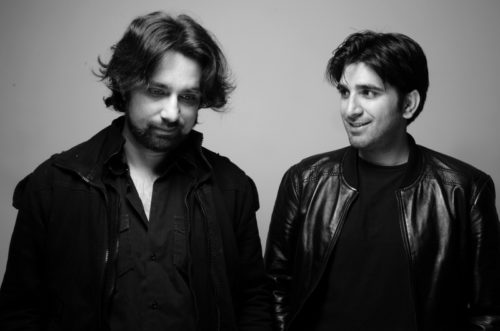
ET: 'O Re', 'Tinak Dhin', 'Aja Moray Sayyan' and 'Paar Channa De' have been top hits in Noori’s appearance on Coke Studio. What kind of indication does that give you about the future of Noori and the kind of music people resonate with?
AH: In all honesty, this has been kind of a discovery process for us too. At the end of the day, the songs when we make them, for me it’s a very natural process. It comes from within. Yes, I think there’s also a very distinct rock kind of style and with Coke Studio and we got to explore that – it’s a very non-pop-rock kind of a sound soundscape, using more indigenous sounds. That was something that is built more into my system than Ali Noor’s and we got to explore that together in Coke Studio. Now there are two kinds of things that I’ve observed in the audiences. There are two kinds of audiences. There’s a class of an urban educated audience which is very limited in number, population wise. But yes they are the trend-setters. And it’s got me thinking - like there’s an economic hierarchy, there’s an aesthetic hierarchy, with taste, and it leads to the questions in the mind for sure.
So there’s this urban middle class, English-medium school audience who are far more exposed to the lot that is coming out from the West, they have a better connect with say the Western influence. But then there’s a whole mass of indigenised desi people whose outreach is to India, because there’s no language barrier and they can connect and that’s a crossover. And that population is huge. I’m very excited, because until now I’d just been focused and working with the niche urban middle class - which is where I come from, to be honest, therefore it’s easier to connect with that particular audience.
It’s a challenge for me to connect with people who don’t come from that background - and the kind of songs that resonate with them, which I’m sure aren’t songs like Suno Ke Main Hoon Jawan or Dil Ki Qasam. That’s the reality of it and it’s a challenge. It’s an experiment to see how well you connect with them. Abida Perveen, Esa Khelvi, Hasan Jahangir, they connect with them very well. I just want to know how we can connect with that audience. We tried it when we went on the Punjab College tours – I want to carry on with that journey.
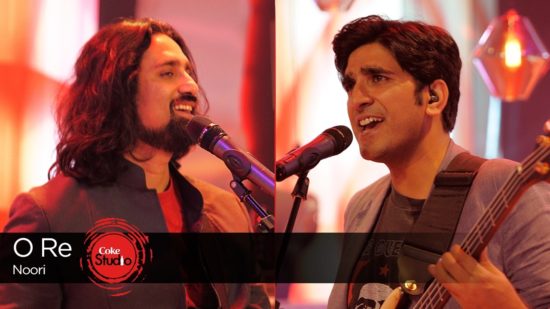
ET: What’s with the ghata/moray/saavan recurring themes that exist in your music? How conscious is this ethos?
AH: It’s more of the environment that I was brought up in. My mother’s side of the family was from Lucknow, and therefore there’s a lot of 'Purvi' influence like Moray Saiyaan, O re, Man Bharo. We used to hear a lot of Sanskritised Purvi and a lot of classical music which resonates in our music. There’s lyrical lilt and romanticism to these words which I really like. If you listen or see Ali Noor’s songs, they don’t have much of this - this is more my taste. So you’ll see a lot of ‘ghata’ and ‘saavan’ and ‘moray’ – I’m more old-school that way.
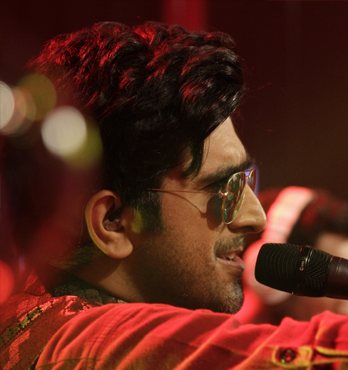
ET: What did you think of Coke Studio’s National Anthem?
AH: It’s the National Anthem. I think the best version of the National Anthem is the one that I made for the ‘Gul Bakaoli’ album, the Saaya e Khuda e Zuljalal – I think that’s what truly inspired me. I don’t want to sound egotistical but I want to be as objective as I can about this.
ET: What are your thoughts on the criticism that came Coke Studio’s way? Nepotism, ruining classics, not being as successful as some of the earlier seasons?
AH: There are a variety of criticisms. There are many components to it as well. With Battle Of The Bands, it sort of became a battle as well, a marketing battle - of creating a good narrative and a bad narrative. And in this digital world, if there’s a little bit of a bad impression it’s very easy to build on it. The similar rule applies for a good impression. Where nepotism is concerned, I think it’s a very stupid way to look at things. It’s a very limited industry; there’s a very few people in the music industry in Pakistan if you look at it objectively. And then there are corporations that work with music. So everyone has a relationship with each other of some kind. I don’t look at it as an issue of nepotism, rather as an issue of the scarcity of skill. But yes I am learning about the third thing – which is that if you do the same thing over and over, people do get bored.
I think this is where Coke Studio also needs to reinvent itself. In this day and age, things get boring and outdated when they get rammed in your face. If you don’t show them something for three years and bring it back the fourth year, it can create hype. The real game is of reinvention. You keep changing. Whether it’s Coke Studio or any other artistic endeavour, if you’re planning to run for a longer period of time, you have to have that ‘reinvention’ sense worked out. You have to keep innovating. The best principle is – throw away the beaten track. Discover a new track.
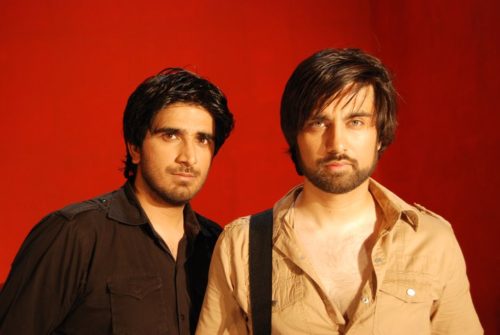
ET: Any more thoughts or plans of venturing back into films? Or any plans of releasing albums now, the way you guys used to?
AH: Ali Noor believes in albums much more than I do. I think albums should only come out when there’s a theme. Nowadays, albums don’t release as often because there’s the technological constraint to put out a 60-minute feature. So presently, an album makes sense if you have a theme at play - or if you are new and want the world to see your music. But yes it’s still a working format and people are still doing it; it’s a good way of consolidating your work. But I’ll tell you it’s ALL changing. I myself am trying to figure out how to go about connecting the music with the people today. Sometimes people connect to a cover more than the original you put out. I want to keep that flexibility in that songs that I put out. As for films, if something interesting comes, sure. But I’m a songmaker and I just want to keep making songs whether they can be put into a film, album, Coke Studio, my fun is in making music.
ET: What is your inspiration/favourite new talent in the Pakistani music scene at the moment?
AH: New talent is starting to emerge now – kids who are 10 to 15 years younger than us are now interacting with us and Ali Noor can speak more on that. These kids are so well-equipped. My own son is just five and I can already tell that his generation is going to be chock-full of kickass musicians. The future is bright and much more promising – what we’ve done is nothing compared to what the future generations have to offer - especially from Pakistan. That’s very exciting. I hope we can play a constructive role for others in this journey - that’s, in fact, very important.
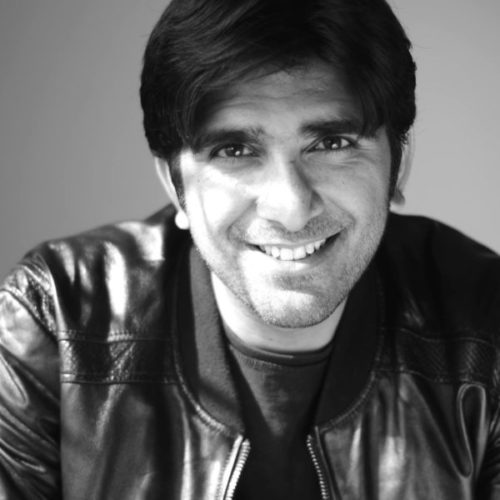
ET: Would you ever head the Bollywood way?
AH: As I said, I like making songs. I like making music, I like to sing. I even like acting once in a while. Whatever’s fun, I want to pursue. And if’ it’s not fun, they better be paying me a hell of a lot of money!
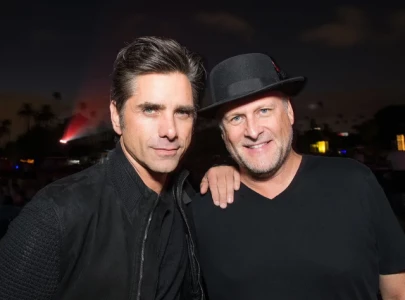





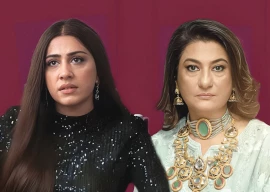










COMMENTS
Comments are moderated and generally will be posted if they are on-topic and not abusive.
For more information, please see our Comments FAQ